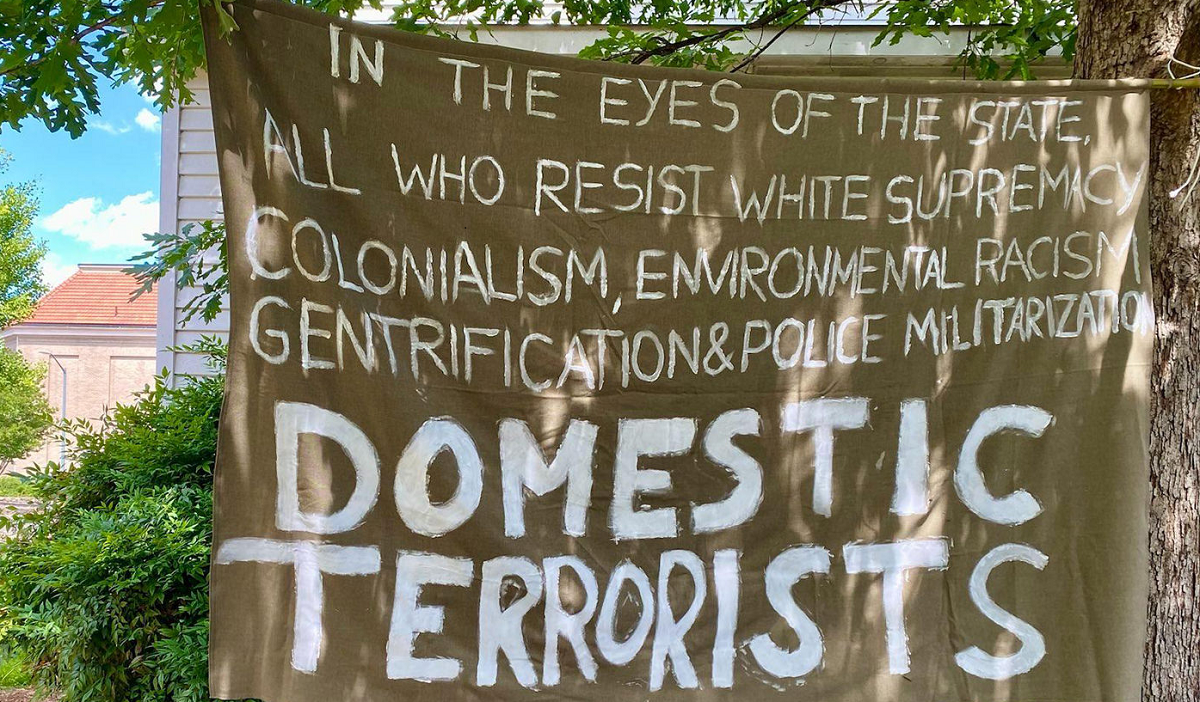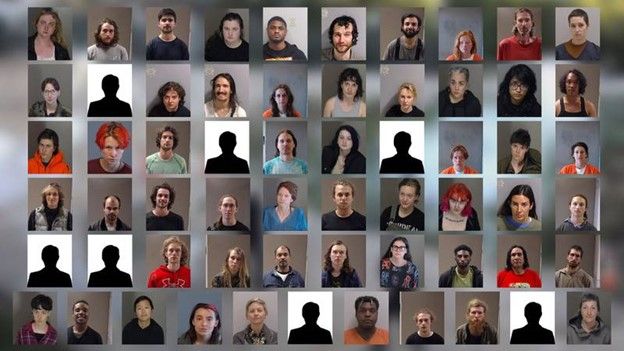In a disturbing turn of events, the Georgia Attorney General's office has brought racketeering charges against 61 activists who have been passionately opposing the construction of a sprawling police training facility known as "Cop City" in Atlanta. This move represents yet another instance of state repression against a movement striving to challenge the construction of this controversial facility, which activists believe will intensify the repressive tactics of the US police force.
Since 2021, Atlanta residents have been vigorously contesting the proposed construction of "Cop City" on a significant portion of the city's largest urban forest. Activists argue that this massive police training facility will further militarize law enforcement and contribute to the increased repression of marginalized communities, particularly Black and Brown individuals and the working class. The movement against "Cop City" has employed diverse tactics, including protests, forest occupations, direct actions, and artistic expressions.

The Atlanta Police Foundation, in conjunction with the state apparatus of Georgia, has persistently attempted to quell this grassroots movement. The recent indictment of 61 activists is emblematic of the state's ongoing repression. Alarmingly, 42 of the defendants had previously faced charges of domestic terrorism. Among those charged are activists accused of money laundering for running a bail fund, a legal observer arrested for monitoring protests, and individuals detained for distributing flyers containing the name of a police officer linked to the killing of fellow protester Tortuguita.
Activist Mariah Parker, a prominent figure in the Stop Cop City movement, views these charges as a desperate effort by the state to stifle the movement against police brutality. Despite the authorities' relentless attempts to crush the movement, it has only grown stronger and more organized.
What's particularly alarming is the attempt to link the actions of anti-Cop City protesters, whom prosecutors label as "militant anarchists," to the 2020 anti-racist protests that erupted after the murder of George Floyd. The indictment traces back to May 25, 2020, the day of George Floyd's killing. This misalignment of dates reflects a deliberate effort to associate the movement with criminality, even though the Stop Cop City movement emerged in 2021.
This state repression mirrors the historical legacy of COINTELPRO, which aimed to undermine grassroots movements against police violence. It's a continuation of efforts to sever the bonds between communities and organizers, preventing the envisioning of an alternative to a system marked by police terror and racial injustice.
The racketeering charges brought against Stop Cop City activists signify a disturbing escalation of state repression in Atlanta. Rather than addressing the concerns of the community, the state has chosen to criminalize those standing up against the construction of "Cop City." This blatant abuse of power demonstrates the urgent need to challenge the prevailing capitalist system and the structures of repression that perpetuate its injustices.

